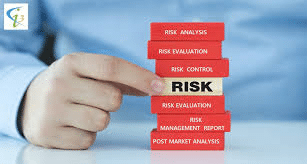Quick Contact

Scientific Validity
The definition in Article 2 of the regulation describes scientific validity as ‘the association of an analyte with a clinical condition or a physiological state. This association is a fundamental factor in the justification process for the development and production of IVD devices, to demonstrate the general safety and performance of an in-vitro diagnostic device. This section provides an overview of the medical context and environment in which the in vitro diagnostic (IVD) test is performed
Why Scientific Validity
Scientific validity shall ensure continued acceptability of the benefit-risk ratio and of detecting emerging risks based on factual evidence. It is significant because it contributes to establishing benchmarks for the IVD’s performance in other assessments conducted in that setting. The scientific validity of an IVD is not a one-time activity and requires continuous confirmation throughout the lifecycle of an IVD.
Determination of scientific validity is not necessary where the association of an analyte to a clinical condition/physiological state is well known, for a new analyte and/or new intended use, scientific validity needs to be demonstrated.
For well-established assays, the description of clinical guidelines or published literature will suffice. In contrast, for newly developed assays, where published evidence is limited, the manufacturer will need to provide evidence for scientific validity such as proof-of-concept studies or clinical performance studies. Each piece of information is appraised to determine its relevance and quality for establishing the association between the analyte and the clinical condition/physiological state.
Do you need an email containing full details within 2 minutes?
How to conduct Scientific Validity Report
Scientific validity will be based on one or more of the below potential information sources:
- Information on IVD medical devices that measure the same analyte and with the same intended use that have marketing history (e.g. Instructions for Use)
- Literature searching: this information might be found in peer-reviewed articles, regulatory guidance documents, conference proceedings, etc., the methodology, the protocol, and report of the literature review must be included in the scientific validity report.
- Review of expert opinions: this information might be found in sources that include textbooks, clinical guidance documents, position statements from academic and professional organizations.
- Results from proof-of-concept studies: these studies are usually smaller-scale scientific studies to identify the fundamental association of the analyte with the clinical condition/physiological state.
- Results from clinical performance studies that are conducted must meet the requirements of Annex XIII, section 2.
The validity of the analyte or marker inference from the above sources should be demonstrated and documented in the scientific validity report. The scientific validity demonstrated shall be in line with the analytical and clinical performance sections of the Performance Evaluation Report (PER).
Certain Class A devices, controls, and calibrators may not require scientific validity to support clinical evidence. Where these devices do not perform the assay itself, the PEP will need to describe that although scientific validity is not applicable for this type of device, scientific validity from the associated assay is valid. So, for manufacturers that only place controls or calibrators on the market, for example, they will need to provide an SVR describing the association of the analyte for the assay(s) they are supporting.
Role of Consultants in Scientific Validity Report
- Consultants with good scientific, clinical and Regulatory knowledge along with good writing skills help with collecting necessary information, screening and evaluation of data followed by compilation of a Scientific validity report.
- Consultants develop the necessary record templates in line with procedure and develop strategies for performance evaluation, literature search and appraisal.
I3CGLOBAL and their professionals are qualified and experienced to takeup any risk class IVDR projects from any part of the world.
Frequently Asked Questions
Is scientific validity being part of performance evaluation report?
Is Scientific Validity Plan should be in line with PEP?
Very useful for small and medium size medical device manufactures

